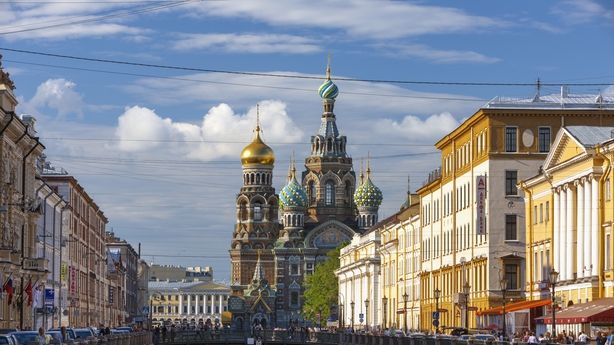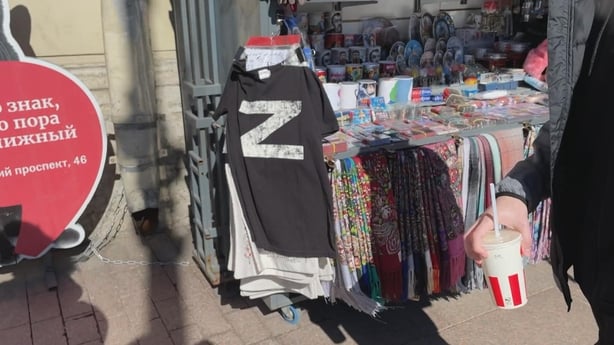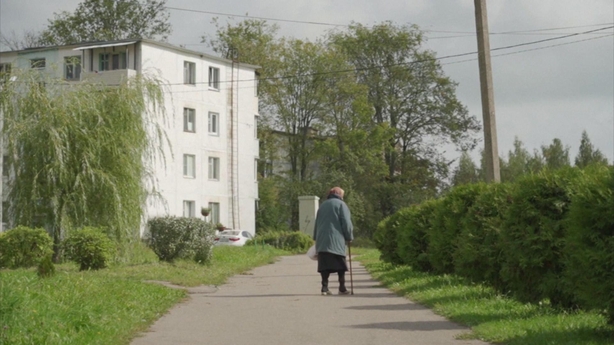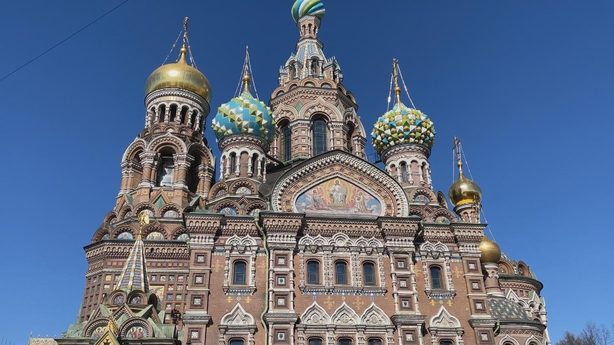"Putin does everything right. He puts things in order in Ukraine." The words of one young man interviewed on the streets of St Petersburg.
He was approached along with around 50 other people last week in the Russian city centre to get a sense of local opinion on the war in Ukraine. Prime Time asked a St Petersburg based videographer to record the questions.

The same young man agreed with the 'special military operation' in Ukraine telling Prime Time: "I think after the conflict ends people will understand the truth. Now not many know the truth, but once the war will be settled everyone will understand that the Russian operation was right."
Another older woman, who was interviewed, agreed with the Russian decision to invade and said people have been suffering in Ukraine for years. When asked about President Putin she said: "I think he is very smart, reasonable and calm. He is good at politics. His decisions are correct. "
She also believes the western media is anti-Russian. "They show fake news about something that doesn't really exist about terrorists, about our soldiers raping and murdering. I think it is all fake. Not truth."
The views offered in St Petersburg are backed up by a recent national poll conducted by a Russian non-governmental research body called the Levada Center. They interviewed 1,632 people in 137 municipalities of 50 regions of the Russian Federation.

One of the key questions asked was: 'Do you personally support the actions of the Armed Forces in Ukraine?'
29% of people aged 18-24 who were surveyed said 'definitely yes'. But that figure rose to 64% for those aged 55 and over who answered, 'definitely yes'.
When asked: 'What feelings do Russian actions in Ukraine cause you?' 60% of over 55s choose 'Pride for Russia', whereas 33% of the 18-24 age group choose the same option – 'Pride for Russia'. Over half of this young age group also noted feelings of 'shock' and 'fear' over actions in Ukraine.

So, what explains the difference in opinion among age groups towards the war? Typically, the older part of the Russian population who live in provincial towns and villages, glean their information from Russian state television and therefore are more likely to approve of the war.
Younger sections of society often live in large cities and have a broader information environment. They use a range of social media platforms, have a better understanding of the English language and are therefore more likely to be exposed to and understand Western media sources.

In urban Russian environments like Moscow, younger cohorts were also more exposed to anti-war sentiment and protests in the initial stages of the war.
When Prime Time asked questions of younger cohorts on the streets of St Petersburg, the vast majority refused to speak about the conflict in Ukraine, citing reasons such as "It is too dangerous a topic", "I am not competent enough to talk about this." One respondent even refused to speak on camera explaining social pressure in Russia would not allow him.
Even if there is a reluctance to speak out against the war, Russian polls still show an overwhelming support for the invasion.The recent Levada Center publication showed overall 81% of respondents support the actions of the Russian armed forces in Ukraine.
However, critics would still question the validity of Russian polls right now given increased censorship, fear of speaking out against Vladimir Putin's regime, combined with a tightly controlled Kremlin narrative on the Ukrainian conflict.
Despite support in Russia for what they refer to as a "special military operation", Western nations are aiding Ukrainian and international efforts to probe alleged crimes committed by Russia's forces in areas they occupied.
European Council president Charles Michel, representing EU states, visited Kyiv on Wednesday and stated that history will not forget the "war crimes" committed in Ukraine.







